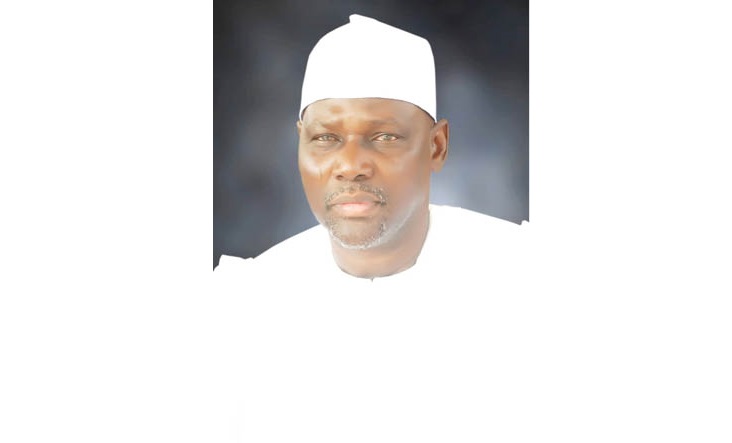We’re upgrading FCE Okene despite meagre resources – Provost
Dr Umar Hassan, Provost of the Federal College of Education, Okene, Kogi State, in this interview speaks on the challenges and progress made by the institution, its relationship with the academic community and other sundry matters. It has been two years since your appointment as provost. How will you describe your stewardship? My utmost gratitude […]

Dr Umar Hassan, Provost of the Federal College of Education, Okene, Kogi State
Dr Umar Hassan, Provost of the Federal College of Education, Okene, Kogi State, in this interview speaks on the challenges and progress made by the institution, its relationship with the academic community and other sundry matters.
It has been two years since your appointment as provost. How will you describe your stewardship?
My utmost gratitude goes to God Almighty for His divine protection and guidance these last two years. Exactly on 26th September 2017, President Muhammadu Buhari graciously approved my appointment as the provost of this great citadel of learning.
From the beginning, I met a college with great potentials and with the burning desire to move to the next level of growth and development. As it is often said, government is a continuum, therefore, we set in motion necessary machinery to address all the lingering challenges we met on ground which are majorly financial and of course, academic related. We inherited huge liabilities of promotion arrears for 2015 and 2016 which were as a result of shortfall in personnel cost.
In spite of the meagre resources at the disposal of the college, critical policy decisions have been taken to stabilize the system with quick interventions in academic programmes. These include the organising of resource visit for the newly introduced programmes of History, Geography, Economics and Adult and Non-Formal Education, which consequently led to the accreditation of the latter.
We also created the Political Science Department as part of our determination to attain the set noble vision and mission of the college and to key into the National Commission for Colleges of Education reforms and in consonance with societal demands. Again, two new schools, namely School of Adult and Non-Formal Education and the School of Early Childhood Care and Primary Education were stabled in addition to more academic directorates and the existing ones restructured for greater efficiency and service delivery.
Apart from insufficient funding, many higher institutions face infrastructural challenges. What do you have to say in the area of effective infrastructure?
This administration met some ongoing TETFUND projects and knowing full well that new projects cannot be accessed without the completion of the on-going ones, it became expedient for us to mobilize the contractors to site to ensure immediate completion of the projects. These projects were the ICT complex at 60% completion, but now completed; School of Vocational Education lecturer’s building at 70% completion also now completed and the gymnasium at 60% completion then, now completed.
Consequently, despite the conditions attached, we were able to attract the following TETFUND projects to the college: construction of one-storey building complex for Early Childhood Care, Primary, Adult and Non-Formal Education, with external works which is ongoing at 70% completion and construction of twin-200 seat auditorium with external works at 70% completion; and construction of a storey building block of eight classrooms, ongoing at 70% completion.
Also, construction of one-storey office complex for School of Languages, which is at 70% completion and construction of two VIP toilets with borehole facilities. Remarkably too, we have attracted two major capital projects to the college, which are currently on going. These are: construction of administrative building and construction of female hostels.
What has been your administration’s relationship with staff, students and the host community?
A cardinal focus of this administration is staff development. It is our conviction that our policy thrust can only be efficiently and effectively delivered with a well-trained and highly motivated work force. This explained why we attach utmost attention to the issue of staff welfare.
As earlier highlighted, I took the helm of the college at a critical period with growing demands but scarce resources. We inherited huge promotion arrears for 2015/2016.
I am delighted to inform you that so far, we have been able to clear 19 months of 2015 and nine months from 2016 arrears. Remarkably too, 2018 promotion was effected and financially implemented. Similarly, as at December 2017, all salary arrears were cleared. It is also worthy of note that the contentious issues surrounding the payment of arrears of Peculiar Academic and Non-teaching allowances have been put to rest, as we have commenced implementation.
Students’ welfare has also remained a critical part of our development agenda. We have continued to ensure that the college environment is made conducive and well secured for teaching and learning.
This administration has given special attention to college community relation by enhancing our programmes and priorities on Corporate Social Responsibility (CSR). This effort has continued to yield positive results for the sustenance of peace and mutual co-existence with the college’s immediate community.
What are your challenges?
As earlier highlighted, our major constraint is insufficient funding, which of course is not limited to only our college. However, we have been very prudent with the available resources in running the college.
